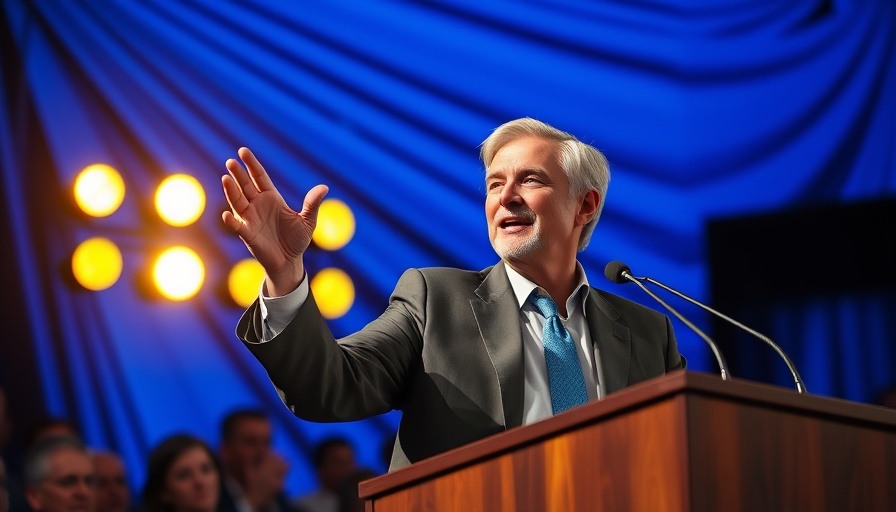
Unlikely Support: UAW’s Fain Backs Trump’s Tariffs
In a surprising turn of events, Shawn Fain, President of the United Auto Workers (UAW), has publicly supported President Donald Trump's tariffs on automobiles, which impose a significant 25% levy on both cars and auto parts. This endorsement raises eyebrows given Fain's previous criticisms of Trump during his campaign. However, his recent statement on ABC News' ‘This Week’ makes it clear: Fain believes these tariffs are crucial in addressing a long-standing crisis in American manufacturing.
Understanding the Tariff Dilemma
Fain pointedly referred to the effects of the North American Free Trade Agreement (NAFTA) enacted in 1992, claiming it has led to a substantial job loss in the U.S. "Tariffs aren't the end solution, but they are a huge factor in creating, fixing the problem," he argues. His perspective highlights a ‘triage situation’ in the economy, where immediate actions are needed to halt job losses and restore the integrity of the American auto industry.
Historical Context and Background
The unexpected union of Fain and Trump over tariffs showcases a significant shift in political alignment, reflecting broader sentiments among some union leaders. Historically, labor unions have favored Democratic policies, yet Fain’s clear stance illustrates an evolving paradigm where protecting American jobs could transcend party lines. His remarks underscore the urgency of recalibrating trade policies that have long been seen as detrimental to domestic employment.
The Economic Ripple Effect
Implementing high tariffs can indeed help U.S. manufacturers by putting a stop to foreign competition that benefits from lower tariffs. However, while the intention is to safeguard jobs, such moves might also provoke retaliatory tariffs from trade partners. Fain’s support is predicated on the hope that enhanced job security will outweigh potential short-term pain at the consumer level, as prices for goods may rise significantly.
What This Means for the Auto Industry
The intertwined nature of the North American auto industry complicates the tariff situation. As parts cross borders multiple times during the manufacturing process, increased costs could ultimately escalate vehicle prices for consumers. Proponents like Fain argue that ensuring job security for American workers must be a priority, setting the stage for what could be a significant shift in union politics if the Trump administration's tariffs actually result in positive economic outcomes.
Moving Forward: Tariffs and Union Dynamics
As the auto industry navigates the potential fallout from these tariffs, it will be vital for both union leaders and political figures to consider how the economic landscape transforms. Fain's alignment with Trump could inspire other union leaders to embrace similar shifts if jobs are indeed saved or created. Whether this unexpected alliance signifies a long-term change in the relationship between unions and the Republican Party remains to be seen.
In light of these developments, business leaders and managers are encouraged to consider the implications of tariffs not just on pricing, but on the overall economy and labor relations moving forward. Staying informed about how these policies evolve will be crucial for any decision-making in the business landscape. Keep an eye on this story as it unfolds!
 Add Row
Add Row  Add
Add 










 Add Row
Add Row  Add
Add 

Write A Comment